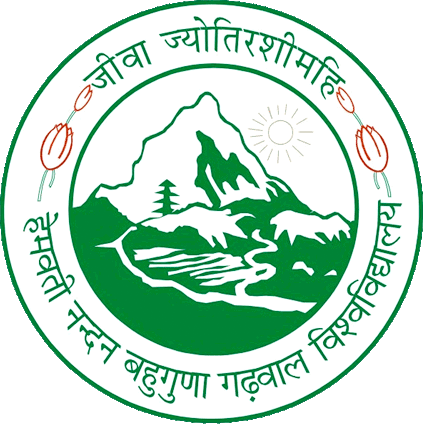About the Department
Nestled in the lap of Himalayas, the green campus of H.N.B. Garhwal University Srinagar Garhwal offers the students a unique opportunity of studying and learning in a serene and pristine environment. Considering the symbiotic role of Biology & Technology, it has become the universally acknowledged fact that the twenty-first century will be the century of Biotechnology and thus its significance will rise exponentially. Presently, the world market for biotechnology based products has reached to several billion dollars and the corresponding growth is witnessed in Indian subcontinents as well. There is a growing demand of trained manpower in the area of biotechnology, right from carrying out the laboratory research to the industrial production and marketing. The advanced, niche-oriented and integrative curricula (combination of foundation, core & elective courses) developed for Biotechnology academic programs at our department not only encompass regular class-room teaching but also involve components for improving communication and technical skills to enhance the employability of the students.
All the faculty members are engaged in research in diverse areas and regularly publish in high impact national and international journals. The department believes in social outreach of the scientific research and to that end has adapted the resolution to take the research from lab to the field. The faculty members have been continuously receiving extramural funding from different scientific agencies for various R&D as well as training projects. Also they update themselves by organising &/or participating in seminars / workshops / symposiums / conferences and special lectures and celebrating days of National & International importance.
Aims &Objectives:-
- To provide balanced & comprehensive knowledge of the basic as well as applied sciences related to Biotechnology.
- To achieve academic excellence through establishment & maintenance of highest standards in teaching & research.
- To generate skilled manpower capable of applying biological techniques to solve basic problems in biological sciences.
- To seek new models of collaboration with other Institutes, Universities and Industries for manpower development, training, and contract research levels.



